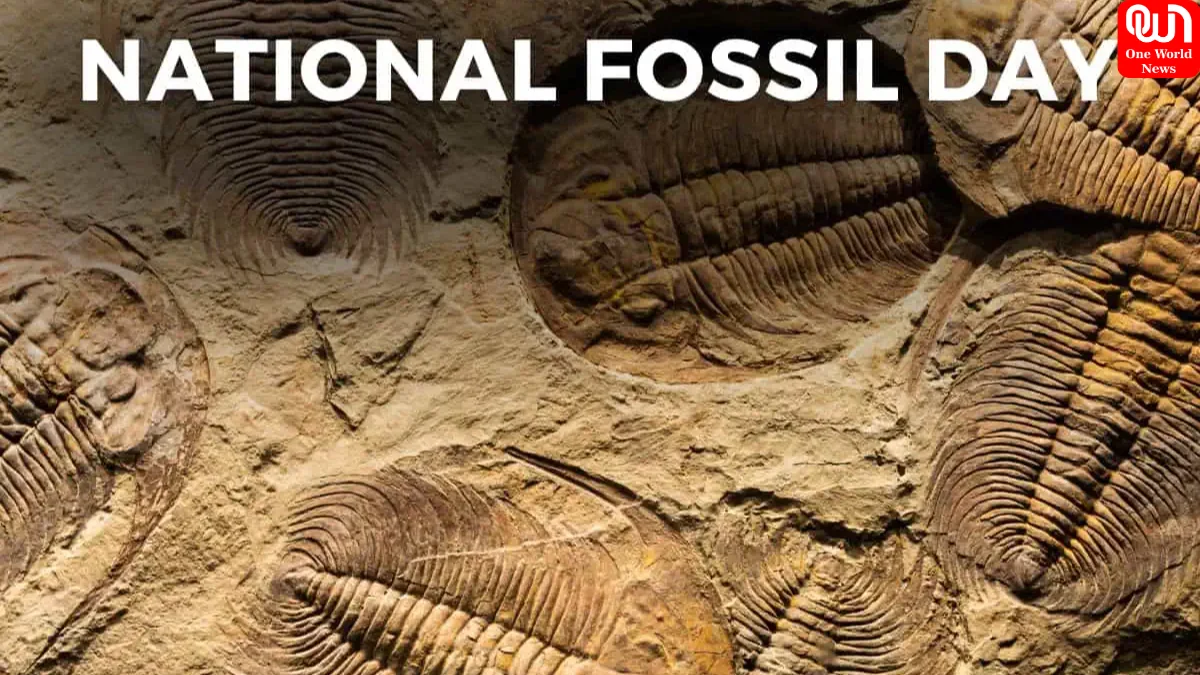National Fossil Day: Understanding Its Significance
National Fossil Day is celebrated to honor and appreciate the preserved remains of ancient life that have been embedded in Earth’s layers for millions of years
National Fossil Day: Celebrate Earth’s Ancient History and Unearth the Wonders of the Past
National Fossil Day: Understanding Its Significance
National Fossil Day is celebrated to honor and appreciate the preserved remains of ancient life that have been embedded in Earth’s layers for millions of years. Fossils provide a window into the past, helping scientists, students, and enthusiasts understand prehistoric life, the evolution of species, and Earth’s geological history. This annual celebration also aims to raise awareness about fossil preservation and the scientific importance of paleontology.
History of National Fossil Day
National Fossil Day was first introduced by the United States National Park Service to bring attention to fossils and promote fossil-related education. The day is typically observed in October, coinciding with Earth Science Week, providing an ideal opportunity to connect Earth’s past with current environmental awareness. Museums, parks, and educational institutions host events, exhibitions, and hands-on activities to engage the public in understanding fossils and their role in science.
Read more: Celebrating World Standards Day: Importance, History, and Global Impact
Importance of Fossils in Understanding Earth’s Past
Fossils are more than just old bones or imprints; they are evidence of life forms that existed millions of years ago. By studying fossils, scientists can reconstruct ecosystems, climate conditions, and even behavior patterns of extinct species. Fossil records help trace evolutionary changes, showing how species adapted or disappeared over time. National Fossil Day emphasizes the importance of these discoveries and encourages everyone to appreciate the insights fossils provide into the Earth’s long history.
How National Fossil Day Is Celebrated
On National Fossil Day, a variety of activities are organized to make learning about fossils exciting and interactive. Fossil hunts, workshops, and educational programs allow people of all ages to explore fossil sites safely and learn about paleontological methods. Schools and museums often organize exhibitions featuring dinosaur skeletons, plant fossils, and ancient marine creatures. Many online campaigns also encourage people to share their fossil discoveries, creating a global community of enthusiasts.
Fun Facts About Fossils
Fossils can be found in different forms, including impressions, bones, shells, and even footprints. Some fossils are millions of years old, preserving the tiniest details of prehistoric life. Amber fossils can trap entire insects, providing a rare glimpse into ancient ecosystems. Even plants and microorganisms have left behind fossilized records, helping scientists understand climate changes and biodiversity across eras. National Fossil Day celebrates these remarkable records and highlights how much we can learn from them.
Reasd more: Celebrating Mwalimu Nyerere Day: Honoring Tanzania’s Father of the Nation
Educational Benefits of National Fossil Day
National Fossil Day offers educational opportunities for students and adults alike. Participating in fossil-related activities fosters curiosity, critical thinking, and an interest in natural sciences. Learning about fossils teaches patience, observation, and research skills while connecting students with the broader story of life on Earth. By promoting educational programs, National Fossil Day helps nurture future paleontologists and environmental scientists.
How to Get Involved
Everyone can take part in National Fossil Day celebrations. Visiting local museums or national parks with fossil exhibits, joining fossil digging events, or attending workshops can provide hands-on learning experiences. Even online platforms offer webinars, virtual tours, and interactive content for fossil enthusiasts. Sharing discoveries on social media or discussing fossil topics with friends and family also spreads awareness and appreciation for ancient life.
Preserving Fossils for Future Generations
Preserving fossils is essential to ensure that future generations can study and appreciate Earth’s history. Fossil poaching, illegal trading, and environmental changes pose threats to these precious records. National Fossil Day emphasizes responsible fossil collection, conservation efforts, and respecting natural sites. Educational programs teach how to identify, document, and protect fossils without harming natural habitats.
Conclusion: Celebrating National Fossil Day
National Fossil Day is more than just a celebration; it is a tribute to Earth’s ancient history and the fascinating stories fossils tell. By participating in events, learning about prehistoric life, and supporting fossil preservation, everyone can contribute to the awareness and appreciation of these natural treasures. Whether through museum visits, educational programs, or personal fossil exploration, National Fossil Day inspires curiosity and respect for the incredible history preserved beneath our feet.
We’re now on WhatsApp. Click to join.
Like this post?
Register at One World News to never miss out on videos, celeb interviews, and best reads.








